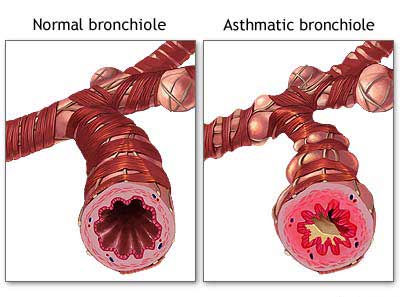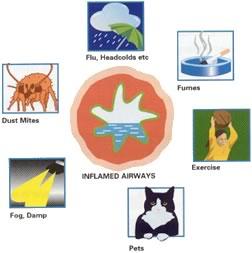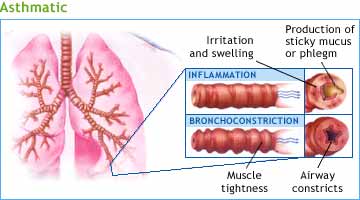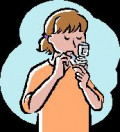How to live with Asthma
Asthma does not go away!
Surprisingly in the early 1970's doctors believed that children who had asthma in infancy and early childhood would "out grow" asthma. That the disease would go away in the later years of childhood and hence not need to be treated. However, today many doctors and studies have revealed that asthma is a disease and it does not go away.
As one who has asthma I believed that I had "out grown" asthma. However, I know that I was treated for asthma in childhood because I remember the "oxygen tents" that were used in the hospitals in the 1970's. Late into my thirties I began to get this burning sensation in my chest. It felt like my chest was "on fire". Wondering if maybe I had bronchitis I walked into the doctor's office and his first question was, "Do you have asthma?". My response, "Well, I did when I was younger, in childhood, but not any more. I out grew it." The doctor replied, "That was the believe decades ago. However studies have revealed that it does not "go away" but goes into remission and can come back in your late thirties with the same vengeance, to the same degree, as in childhood." Believing I had never really gotten rid of asthma was rough. I dove into books and articles and got involved with the local asthma research program.
Asthma is a lung disease that effects many young children and infants. It is often "triggered" by allergies to substances in the environment or natural pollens. The lungs become thick with mucus that inhibits their ability to function properly. Most asthma suffers inhale normally but it is the exhaling portion of the breathing process that is inhibited.
Once asthma is understood as a lung disease alternating life style and proper medical treatment allow the individual to live a very active and "normal" life. However, to believe that asthma has disappeared and will never return to an individual is myth #1.
It is important to work with your doctor in determining the best treatment plan. However if your asthma is triggered by allergens it is important to know what they are and to avoid them if possible. Sometime allergies to various pollens can cause asthma sufferers to lack energy and feel tired. It is important to pace oneself during high pollen days. Being aware of triggers is key to coping with asthma.
Often times doctors recommend an allergist to determine triggers. Treating allergies can minimize the effect on asthma. Even though some asthma can be exercise induced people with asthma should exercise. Studies have shown, for those not with exercise induced asthma, that a fitness plan can also decrease asthma symptoms. Swimming, cycling, walking and other low impact activities are effective in increasing lung capacity.
Many athletes have had asthma yet excelled in their respective sports area. The key to asthma is management. Waiting until symptoms are at their peak is dangerous. It is important to recognize when the triggers aggravate asthma and address it as prescribed by your doctor.
Compare healthy vs asthmatic

Asthma causes, you have extra-sensitive bronchial tubes that are easily irritated. Irritated bronchial tubes cause the following to happen:
- Bronchospasm – The tightening of bronchial tubes which restricts the flow of air.
- Increased mucus – The irritation causes an increase in the production of mucus.
- Swelling and Edema – Cause the airway to restrict the flow of air and often results an acute episode or an asthma attack.
Triggers

Understanding Asthma
Lung Function









